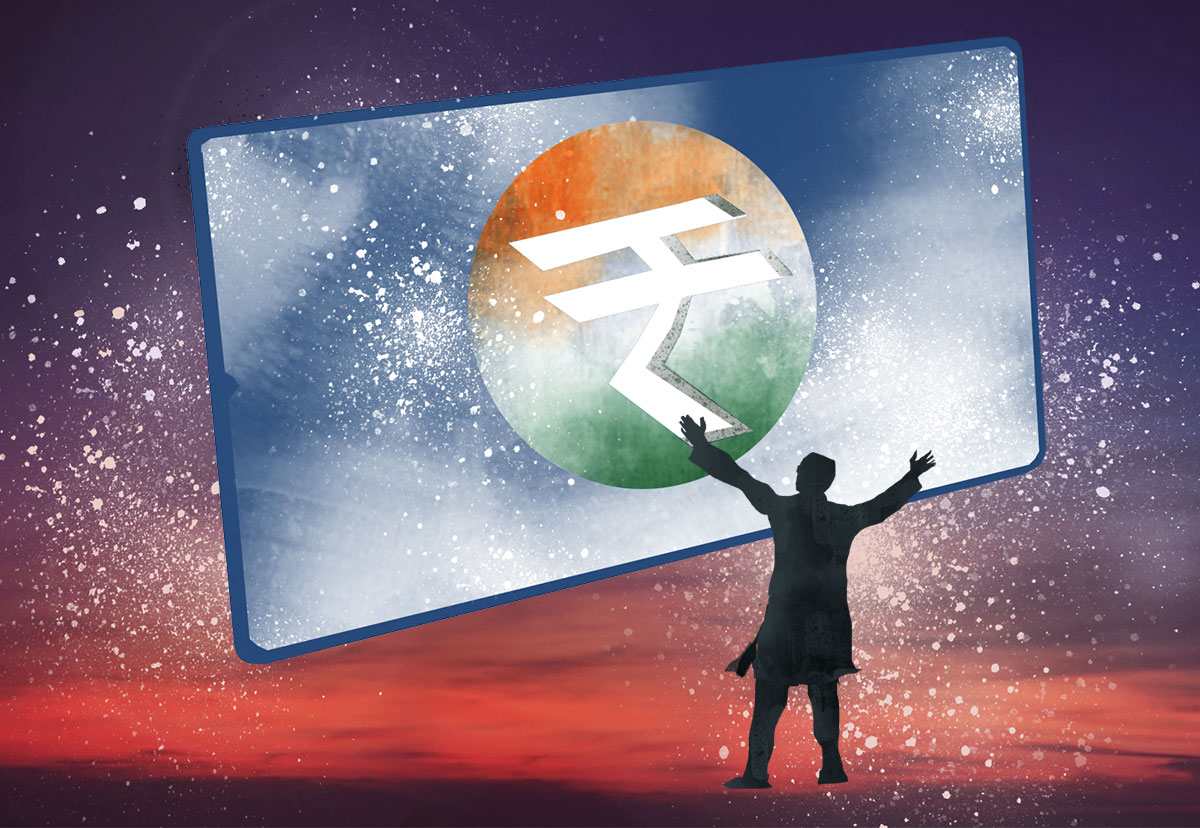'The government will carefully regulate and monitor the Digital Rupee, and because the currency is supposed to be tied to INR or supported by reserves, we should expect little fluctuation in pricing.'

Aishwarya Shivakumar, CEO, Oddz Finance, responds to Prasanna D Zore/Rediff.com's queries about how the Digital Rupee -- proposed in the Union Budget 2022-2023 -- will shape up, its pros and cons, and how different it will be from paper currency and digital payments that we are so used to.
What is Digital Rupee all about? How will it help Indians?
A Digital Rupee will be a blockchain-based digital currency (representing INR value) issued by the Reserve Bank of India's monetary system. It will help Indians make faster transactions along with providing other benefits like security and privacy with the help of the blockchain.
How will Digital Rupee get its value? What asset/assets will back the Indian Digital Rupee?
The Digital Rupee will be pegged to the INR value currently traded in the market. It will mostly be pegged to the INR value in the market. However, it may also be backed by gold or other reserves.
How will Digital Rupee get legal backing? What laws will the government need to amend to introduce Digital Rupee as a legal currency?
There is no clarification regarding the legal backing of the Digital Rupee. The government is creating legislation enabling the creation of CBDCs (Central Bank Digital Currency), and the solution will be discovered over time.
What are the 5 most important things every Indian must know about the Digital Rupee?
- It will be powered by blockchain technology.
- Secure transactions
- Easy to keep a track of
- Easily transferable with lower costs
- Efficient payments
What is blockchain technology based on which the Digital Rupee will be designed?
The government is working on building its own blockchain network to support the Digital Rupee, and updates regarding this will be provided in the future.
How can RBI act as an enabler of Digital Rupee?
The Digital Rupee will be issued by the RBI using blockchain and other technologies. It will be the primary source to issue the Digital Rupee and this will give a big boost to the economy and lead to cheaper and more efficient currency management.
How will a sovereign digital currency (Rupee) be different from cryptos?
The government will carefully regulate and monitor the Digital Rupee, and because the currency is supposed to be tied to INR or supported by reserves, we should expect little fluctuation in pricing. However, this is not true with crypto as they are subject to huge price swings and are not regulated by any authority.
How will the Digital Rupee be different in its functionality from the physical rupee or digital payment that is so popular today?
The Digital Rupee will be powered by blockchain technology, and since blockchains are renowned to be safe and fast, this might eventually lead to a new invention of a currency that is entirely secure from cyberattacks while still being fast to transact. As a result, this might have significant advantages as compared to the current physical rupee or digital payment system.
What are the pros and cons of Digital Rupee?
Pros:
- Easy to track
- Lower transaction costs
- Instant transfers
Cons:
- Single point of failure
- Global competition
- Prone to advanced cyber threats
- Part II: Digital Rupee - Pros And Cons











 © 2025
© 2025